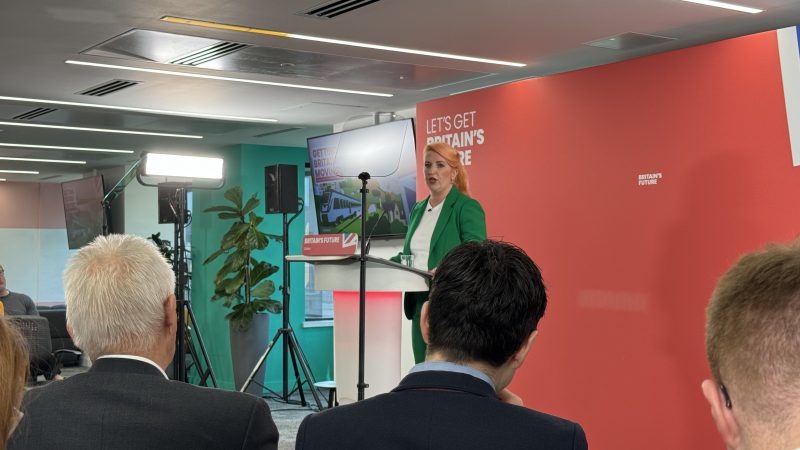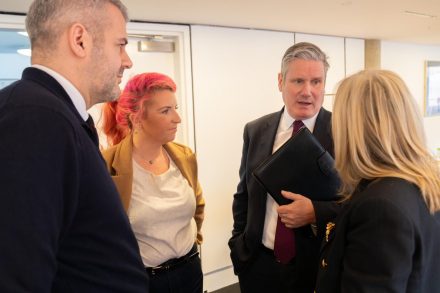“There is the most enormous swathe, of physical bloody destruction which marks out the US and UK relationship with the Iranian people.”
By John Rees
The West, we are told, has an ‘Iranian problem’. But if you’re an Iranian whose memory stretches back over a lifetime of around 70 years, you might think you have a problem with the West.
And you would be right. Because, in living memory, Iranians will know that the first and only attempt at a democratically elected government, that of Prime Minister Mohammad Mosaddegh, who nationalised the British oil holdings in the country and set out to weaken the power of the Shah, was ended by a coup in 1953 with the more or less open, and certainly now admitted, participation of the security services of this country and the US.
What followed was a monarchical regime headed by the Shah, the King of Kings as he called himself. It was a Western client regime which would make the links the West has with the Saudi regime today pale into insignificance. The Shah was a massive purchaser of Western armaments, and he ran a brutal internal regime.
His Savak secret military police was feared throughout the country. He used them to hunt down, capture and torture, or simply kill, his opponents around the world, including in universities here.
When the Shah’s regime was overthrown by the 1979 revolution, a revolution in which there was a significant Iranian working class component, but which eventually ended up in the theocratic regime of the Ayatollahs that runs the country today, it was a significant defeat for the West. It was an overthrow of a Western ally on a scale as if Israel had lost its influence and been transformed, or as if Saudi Arabia had been overthrown and transformed from a Western ally to an independent country.
Because Iran was now seen as a threat the US and West backed Saddam Hussein’s Iraq in the Iraq-Iran war from 1980-1988. A destructive war on the scale of the first or second world war. Half a million military personnel alone were killed on each side.
It was the hubris of the Saddam Hussein regime, due to the unqualified backing it enjoyed from the West, that led Iraq to invade Kuwait with such impunity that it brought about the first, and arguably the second Gulf War, after the West’s sanctions failed to remove Saddam.
So, there is the most enormous swathe, of physical bloody destruction which marks out the US and UK relationship with the Iranian people. And it is precisely because of the West’s repeated and disastrous responses to that relationship that have caused things to become so dangerous in the Middle East now.
The war on Iraq was another catastrophic failure in the West’s relationships in the region. It did not turn Iraq into the stable, pro-western state it was hoped it would. Instead, it destroyed the country and produced an Iraqi government which is pro-Iranian.
Much like the interference of the US in the Arab revolutions after 2011 convinced the Houthi movement, which was ultimately a product of that revolutionary wave, that leaning towards Iran was its best option.
Likewise, the repeated attempts by Israel, with full Western backing, to invade and subdue Lebanon has resulted in a resistance movement in Hezbollah, which orients towards the Iranians. And it was the disaster of the Oslo peace process, impressed on the Palestinian people by our government and the US, that convinced many Palestinians that the PLO was not a viable strategy and that helped sustain support for Hamas, which has pro-Iranian political leanings.
Of course, none of these forces in the Middle East are puppets of Iran in the way they’re described in the Western media. They all have perfectly legitimate reasons for not being particularly well disposed towards the West. They all have their own constituencies and their own support bases which simply obscures the real political processes in the Middle East.
However, the course of politics in the region has certainly led to numerous political forces looking to the Iranian regime rather than to any of the pro-Western ones, which have done everything they can to prove that their policies in the Middle East are wholly and completely destructive.
So, the result of Western policy to Iran itself and towards the struggles of the Palestinians and towards the broader struggle of the Arab masses against their own dictatorships has resulted in a strategic shift in our lifetime to make Iran the most powerful regional player. US and UK policy has achieved, by its failures and repeated hostilities to the popular will of the Middle Eastern people, exactly the opposite of what it intended.
Instead of pro-Western, stable regimes, they have produced massive instability and the growth of the Iranian state as a regional power in the area.
Ultimately, this is what we’ve seen come to fruition in the past week. A regional war became a very real possibility, from which we only stepped back when it came to the very brink of a sustained military exchange.
It could be said that the Iranian response to the bombing of its embassy in Damascus and the Israeli response to it have in a way been performative. And it’s true that the US and the Western powers didn’t want to see the entire region go up in flames. But I don’t think we should see this as the end of things. This is simply a more dangerous escalation. The red line of Iran and Israel firing directly on each other’s territories has been breached. Now we have a different, more unstable situation than since the fall of the Ottoman Empire in the First World War.
The inability of the West to seriously restrain the Israeli state in Gaza has not been resolved and therefore the consequent conflicts and involvements of Hezbollah and the Houthis has not been removed.
So, the peace movement must redouble its efforts and our explanatory capacity to link these events and dispel the lies and misconceptions that are so current in our media. This doesn’t of course mean, as it has not meant in any previous conflicts, that we are in favour of the Iranian regime, anymore that it meant we were in favour of the Taliban in Afghanistan or of Saddam Hussein. We simply believe that all this history proves, beyond any doubt, that the one group of people who are absolutely incapable of contributing towards a more democratic and just and stable Middle East are our governments.
Wherever they have said they are acting for democracy and peace, the exact opposite has resulted. Afghanistan was a 14-year war which led directly from Taliban rule to, yes, Taliban rule. It led to the destruction of Iraq and the turning of Libya, whatever the view of Muammar Ghadaffi, into an ungovernable territory with slave camps transiting desperate people into Europe.
This underlies a very simple fact about international relations. The only people who can be trusted with regime change are the people of the country concerned.
Take South Africa. The masses changed the apartheid regime and ended up shaping the fate of their country. But if it is the 82nd Airborne Division that does the regime changing, then it is the 82nd Airborne that does the ruling afterwards.
So, as ever, we must stand with the people, for peace and for democracy, against the rulers, both here and in the Middle East, who have led to such a disastrous post-war experience for the workers of the region.
- John Rees is an Officer of the Stop the War Coalition. This piece is based on his speech at the recent Israel, Iran & The Threat of Wider War online briefing which you can watch in full here.













